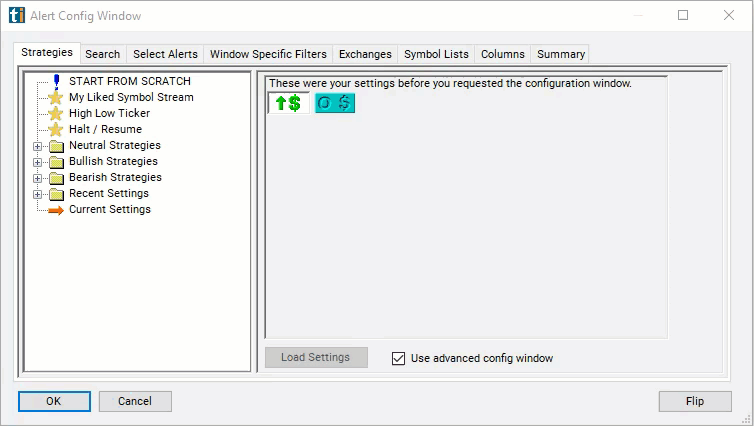Change From The Open
Table of Contents
- Understanding the Change from Open Percent Filter
- Change from Open Percent Filter Settings
- Using the Change from Open Percent Filter
- FAQs
Understanding the Change from Open Percent Filter
The "change from open (%)" filter refers to the difference between the current price of a stock and its opening price, measured in percentage. This filter provides traders with information about how much the stock price has moved since the open. Positive numbers represent stocks which are trading higher now than at the open. Use negative numbers for stocks which are trading lower than at the open.
These filters are related to the % up / down for the day alerts. The filters and the alerts both compare the current price to the open. However, there are some differences:
- The alerts typically only display once for each level. The filters always have a value.
- The alerts only work with percentage values.
- The alerts only report whole numbers, like 3% and 4%. The filters allow fractions, like 3.5%.
- The alerts only work during normal market hours.

Change from Open Percent Filter Settings
The settings of each Trade Ideas filter are defined in the Window Specific Filters Tab located in the Configuration Window of your Alert/Top List Window.
Here is how to setup the filter in your configuration window:
- Set the min value to 3 to see stocks which are up at least 3% from the open.

Using the Change from Open Percent Filter
Several trading strategies can be employed with the Change from Open Percent filter. Here are a few examples:
Momentum Trading: Momentum traders aim to capitalize on the continuation of an existing trend in the stock's price. Traders may look for stocks with a significant positive change from the open, indicating upward momentum. They may then buy the stock, expecting the price to continue moving higher. Conversely, if a stock has a significant negative change from the open, indicating downward momentum, traders may consider short-selling the stock.
Breakout Trading: Breakout traders aim to capitalize on significant price movements that break through key support or resistance levels. Traders may monitor stocks with a large change from the open, particularly if the change results in the stock breaking through a significant support or resistance level. They may then enter trades in the direction of the breakout, anticipating further price movement in that direction.
Reversal Trading: Reversal traders aim to identify points where a stock's price is likely to reverse direction. Traders may look for stocks with an extreme change from the open, indicating potential overextension in price. If a stock has experienced a large positive change from the open, traders may anticipate a reversal and consider short-selling the stock. Conversely, if a stock has experienced a large negative change from the open, traders may anticipate a reversal and consider buying the stock.
FAQs
How is the "change from open (%)" calculated?
- The "change from open (%)" is calculated by dividing the difference between the current price and the opening price by the opening price and then multiplying by 100 to express the change as a percentage.
What does a positive/negative "change from open (%)" indicate?
- A positive "change from open (%)" indicates that the current price of the stock is higher than the open, while a negative "change from open (%)" indicates that the current price is lower than the open.
How do traders use the "change from open (%)" filter in their trading strategies?
- Traders may use the "change from open (%)" filter to identify stocks that have experienced significant price movements since the open. They may then incorporate this information into various trading strategies, such as momentum trading, breakout trading, reversal trading, or volatility trading.
Filter Info for Change From The Open [FOP]
- description = Change from the Open
- keywords = Single Print
- units = %
- format = 1
- toplistable = 1
- parent_code = FOD





